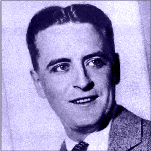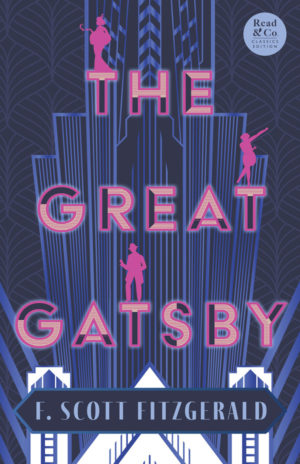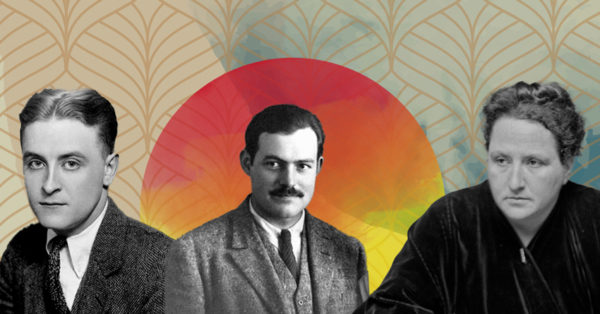
F. Scott Fitzgerald was born on 24th September 1896 in Saint Paul, Minnesota, USA.
Born to an upper-middle-class family, Fitzgerald was named after the famous lawyer and his second cousin, Francis Scott Key, but was referred to as Scott. His early education was at two Catholic schools in Buffalo, New York, first the Angels Convent, where he attended lessons for only half of the school day (he was allowed to choose which half) and then Nardin Academy. At an early age, he was recognised as being of unusual intelligence and developed a keen interest in literature.
In 1908, his family returned to Minnesota due to his father being fired from Proctor & Gamble. While in Minnesota, he attended St. Paul Academy and began his career as a fiction writer, having his first story printed in the school newspaper at the age of 13. He then moved to a prestigious Catholic prep school, Newman School in Jersey, before graduating in 1913 and enrolling at Princeton University.
He became immersed in the literary culture at Princeton, making friends with future writers and critics such as John Peale Bishop and Edmund Wilson, and writing for university publications including The Princeton Tiger and the Nassau Lit. His studies, however, suffered due to his literary pursuits, and in 1917 he dropped out of education to join the U.S. Army and fight in World War I. He had made a couple of submissions of novels to publisher Charles Scribner's Sons, but both were rejected even though his writing style was praised. One of these was The Romantic Egoist, hastily written before reporting for military duty for fear that he may die in the ensuing fighting. This novel was later revised and accepted in 1919 under the title This Side of Paradise.
While serving as a second lieutenant in Montgomery, Alabama, Fitzgerald met his future wife, Zelda Sayre, daughter of an Alabama Supreme Court justice. When the war ended in 1918, he and Zelda wedded, and in 1921 had their first and only child, Frances Scott “Scottie” Fitzgerald.
During the 1920's Jazz Age Fitzgerald became enchanted with the expatriate community in Paris, visiting several times and making influential friends such as Ernest Hemingway. He continued his career writing short stories for magazines such as The Saturday Evening Post, Collier's Weekly, and Esquire, while at the same time pursuing his ambitions as a novelist.
He and Zelda lived an opulent lifestyle as New York celebrities, but all was not roses. Fitzgerald was well-known as a heavy drinker and struggled with financial difficulties. He was constantly borrowing money from his literary agent, Harold Ober, but when Ober decided to cut him off, Fitzgerald severed ties with his long-time friend. These financial problems became even more worrisome when Zelda was diagnosed as having schizophrenia in 1930. She was hospitalised and remained fragile for the rest of her life. This inspired his final complete novel Tender is the Night (1934), which tells the story of a young psychoanalyst, Dick Diver, and his wife, Nicole, who is also one of his patients.
In 1937 Fitzgerald moved to Hollywood, where he continued writing short stories and working on projects for the film company Metro-Goldwyn-Mayer. While there, Fitzgerald began a relationship with gossip columnist Sheilah Graham, with whom he lived whilst, now estranged, Zelda remained in mental institutions on the East Coast.
His alcoholism had been a part of his life since college, but by the late 1930s it began to seriously impact his health. It was his third heart attack that killed him, and he was pronounced dead on 21st December 1940, aged just 44.
He is remembered as one of the greatest American writers of the twentieth century. His work, The Great Gatsby (1925), though not highly praised during his lifetime, is considered to be his magnum opus and is often on reading lists of English literature students around the world.








 The Lost Generation: Literature of the American Jazz Age
The Lost Generation: Literature of the American Jazz Age

